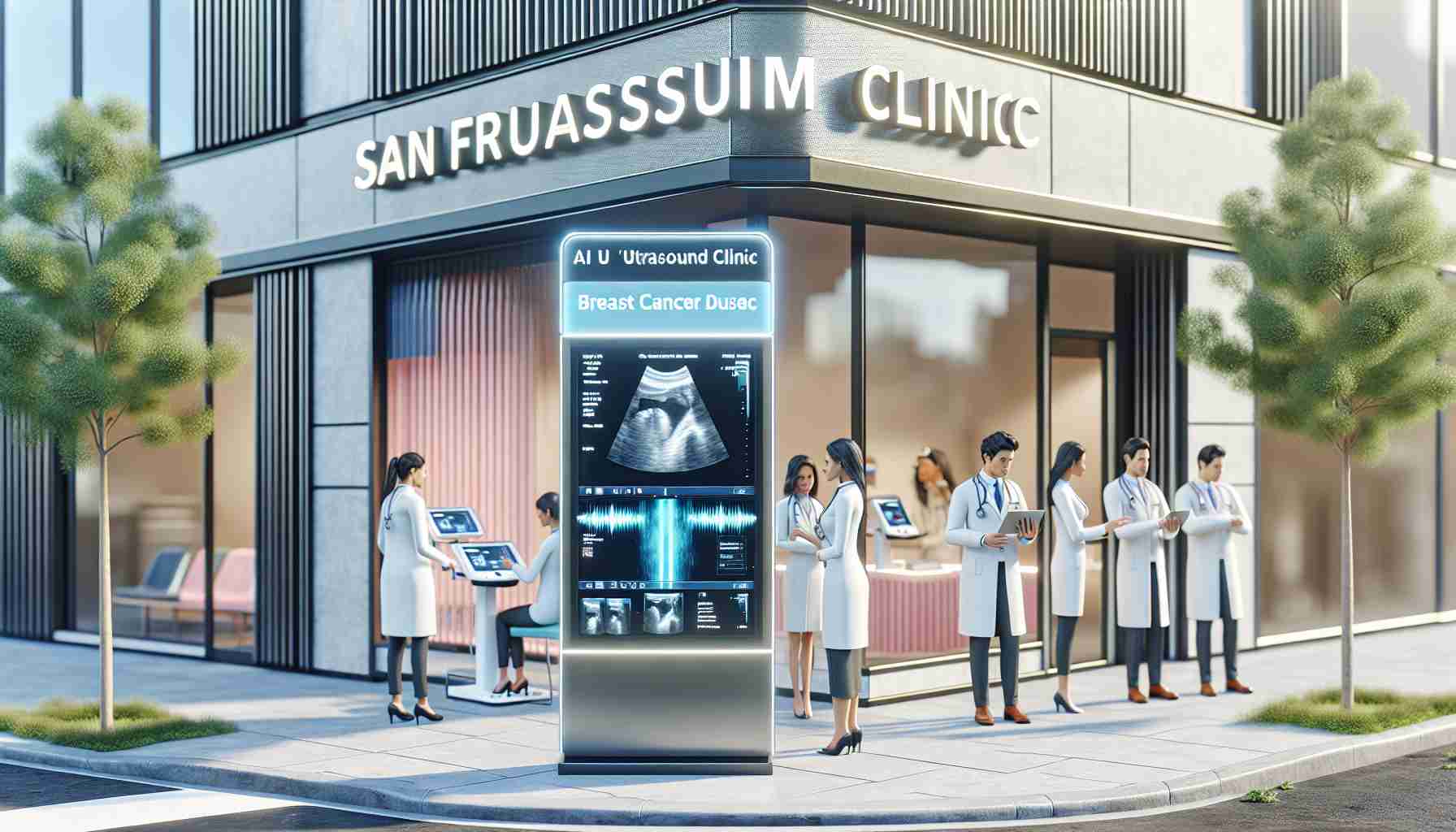A clinic in San Francisco has become the only known center in the city to implement artificial intelligence (AI) with ultrasound technology, offering a more efficient way to detect breast cancer. At 38, Jenna Williams faced a stage 3 breast cancer diagnosis, which she discovered after being unable to schedule an immediate appointment with her regular doctor. Turning to Eve Wellness, she secured an appointment within 12 hours and was diagnosed eight days later. The clinic employs an automated breast ultrasound machine assisted by AI, enhancing screenings and comparing results against a vast database. This approach has been praised for its efficiency, and no cases of misdiagnosis have been reported since its inception.
Summary:
This report delves into the use of AI in conjunction with ultrasound technology at Eve Wellness, an imaging center that significantly expedites breast cancer detection. Highlighting the story of Jenna Williams, the article illustrates how the advanced screening process can quickly provide critical diagnoses. It also briefly touches upon on-going research into breast cancer screening, such as the WISDOM Study, indicating a personalized approach might be more suitable considering different individual risks.
This innovative strategy is especially crucial for younger patients and those with dense breast tissue, as traditional mammography might miss certain cancers. San Francisco’s Eve Wellness center utilizes a unique system that performs a comprehensive scan without radiation exposure and requires no referral. The scan, lasting about 20 minutes and costing around $350, promises results within 48 hours, potentially life-saving for early detection. The facility’s AI software has significantly improved diagnostic accuracy, making it a critical tool in the fight against breast cancer.
Artificial Intelligence and Ultrasound Technology in Breast Cancer Detection
The integration of artificial intelligence (AI) with ultrasound technology, as evidenced by the pioneering work at a clinic in San Francisco, signifies a transformative step in the healthcare industry’s approach to breast cancer detection. This clinic, notable for its efficiency and accuracy, has set a new benchmark for early diagnosis and has the potential of mitigating late detection risks. The case of Jenna Williams, who received a timely diagnosis thanks to the advanced capabilities of the clinic’s automated breast ultrasound system, underscores the urgent need for more widespread adoption of such technology.
The use of AI in medical imaging has seen substantial growth, with a market forecast that suggests a continued expansion as technological advancements and increased computational power make AI tools more accessible and reliable. The global AI in the medical imaging market was valued at $639.5 million in 2020 and is expected to reach multi-billion-dollar valuations in the next few years.
One of the significant benefits of this integration is its application to patients with dense breast tissue, among whom traditional mammography can be less effective. AI-augmented ultrasound scans provide a complementary, radiation-free method that greatly benefits this subset of patients.
Despite the promising advantages, the industry faces several issues ranging from regulatory challenges, data privacy concerns, to the need for extensive datasets to train AI algorithms effectively. Additionally, there is a skills gap which requires healthcare providers to be trained in the use of these new technologies.
Efforts such as the WISDOM Study point towards a future where breast cancer screening is highly personalized, taking into account individual patient risks. This approach could revolutionize the standard one-size-fits-all screening protocol currently used.
Key Takeaways
– AI with ultrasound represents a significant advancement in breast cancer detection, especially beneficial for younger patients and those with dense breast tissue.
– Markets anticipate a booming growth in the AI medical imaging sector, driven by ongoing technological innovations.
– Despite no reported cases of misdiagnosis at the Eve Wellness center, industry-wide there are ongoing concerns regarding the fidelity of such systems, and the continued need for human oversight.
– The cost-effective and rapid screening provided by centers like Eve Wellness is critical for early detection, but accessibility and cost coverage remain topics for broader healthcare industry discussions.
For those interested in further reading on industry trends and forecasts, you can find more information at reputable sources such as the website of the American Cancer Society: American Cancer Society, or the site of a global authority on cancer research such as the World Health Organization: World Health Organization. Ensure that you are accessing the latest, most reliable information by visiting these main domain resources.

